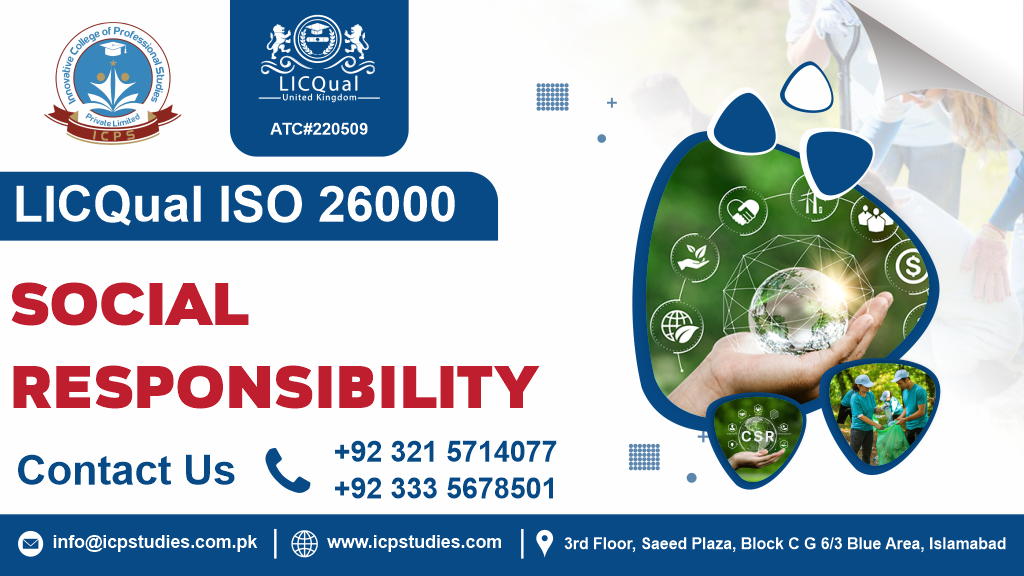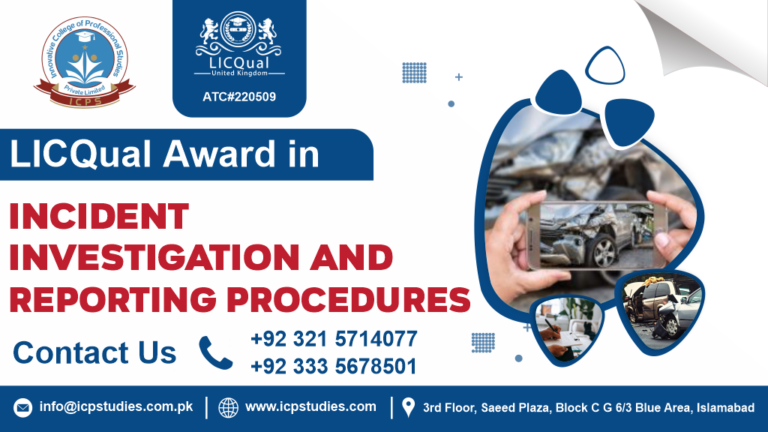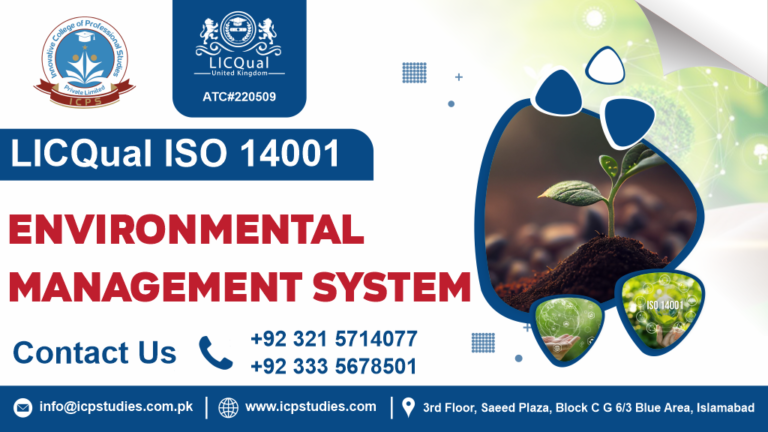In today’s world, businesses and organizations are increasingly held accountable not just for their financial performance but for their social and environmental impact. The ISO 26000 standard for social responsibility provides a comprehensive framework for organizations to integrate social responsibility into their operations and strategies. The role of an ISO 26000 Social Responsibility Internal Auditor is crucial in ensuring that these practices are effectively implemented and continually improved.
ISO 26000 is an international standard that provides guidance on social responsibility (SR) and helps organizations operate in a socially responsible manner. Unlike other ISO standards, ISO 26000 is not intended for certification but rather serves as a guideline to help organizations integrate social responsibility into their values, practices, and operations. The standard covers a broad range of issues including human rights, labor practices, the environment, fair operating practices, consumer issues, and community involvement.
The role of an ISO 26000 Social Responsibility Internal Auditor is vital for ensuring that organizations operate in a socially responsible manner and adhere to the principles outlined in the ISO 26000 standard. By conducting thorough audits, identifying non-conformities, and supporting continuous improvement, these professionals help organizations enhance their social responsibility practices, build stakeholder trust, and contribute to positive societal and environmental outcomes. As the focus on corporate social responsibility continues to grow, the expertise of internal auditors in this field will be increasingly valuable in shaping a more responsible and sustainable future.
All About ISO 26000 Social Responsibility Internal Auditor
Course Overview
An ISO 26000 Social Responsibility Internal Auditor is a specialized role focused on assessing and ensuring that an organization adheres to the principles of social responsibility as outlined in the ISO 26000 standard. Unlike other ISO standards, ISO 26000 does not provide certification but serves as a guideline to help organizations operate in a socially responsible manner. The role of the internal auditor is crucial in evaluating and improving the implementation of these guidelines within the organization.
ISO 26000 Social Responsibility Internal Auditor plays a critical role in evaluating and enhancing an organization’s adherence to social responsibility principles. Through systematic auditing, identification of issues, and support for continuous improvement, these professionals help ensure that the organization operates in an ethical and sustainable manner, aligning with the guidance provided by ISO 26000.
Study Units
- Introduction to ISO 26000
- Core Subjects of Social Responsibility
- Stakeholder Identification and Engagement:
- Integration of Social Responsibility
- Performance Evaluation and Measurement
- Internal Audit Techniques
- Continuous Improvement
- Educational Background: A degree or equivalent qualification in social sciences, business management, environmental studies, or a related field.
- Professional Experience: Relevant work experience in corporate social responsibility (CSR), sustainability, or related areas, usually ranging from one to three years.
- Familiarity with ISO Standards: Basic understanding of ISO 26000 and other related sustainability frameworks is beneficial.
- Knowledge of Social Responsibility Principles: Awareness of social, environmental, and ethical practices related to business operations.
- Audit Principles: Basic knowledge of auditing methodologies and principles.
- Communication Skills: Strong verbal and written communication skills for effective reporting and stakeholder engagement.
- Commitment to Learning: Willingness to engage with course materials and participate in practical assessments.
As specific requirements may vary by provider, it’s advisable to check the details of the course you are interested in.
4o mini
The LICQual ISO 26000 Social Responsibility Internal Auditor course is designed for:
- Internal Auditors: Professionals conducting audits related to social responsibility practices within organizations.
- Corporate Social Responsibility (CSR) Managers: Individuals responsible for implementing and overseeing CSR initiatives.
- Sustainability Officers: Professionals focused on developing and managing sustainability strategies.
- Compliance Officers: Those ensuring adherence to social responsibility standards and regulations.
- Quality Assurance Professionals: Individuals involved in maintaining and improving social and environmental practices within organizations.
- HR Managers: Professionals aiming to integrate social responsibility into workplace culture and practices.
- Consultants: Advisors providing expertise on social responsibility and sustainability practices.
Overall, the course is suitable for anyone involved in the development, implementation, or auditing of social responsibility initiatives within organizations.
Learning Outcome
Introduction to ISO 26000
- Understand the Standard: Explain the purpose, scope, and principles of ISO 26000, including its application and relevance in promoting social responsibility.
- Framework Overview: Describe the structure of ISO 26000 and its key components, including the core subjects and issues it addresses.
- Guidelines and Implementation: Outline how ISO 26000 provides guidance for integrating social responsibility into organizational policies and practices.
- Compliance Assessment: Assess an organization’s current practices and policies to determine their alignment with ISO 26000 guidelines.
Core Subjects of Social Responsibility
- Identify Core Subjects: Define and explain the seven core subjects of social responsibility covered by ISO 26000: organizational governance, human rights, labor practices, the environment, fair operating practices, consumer issues, and community involvement and development.
- Apply Core Principles: Analyze how each core subject contributes to the overall framework of social responsibility and how they can be implemented in organizational practices.
- Assess Practices: Evaluate organizational policies and practices against the core subjects to identify strengths and areas for improvement.
- Integration Strategies: Develop strategies to effectively integrate the core subjects of social responsibility into organizational operations and decision-making.
Stakeholder Identification and Engagement
- Identify Stakeholders: Recognize and categorize various stakeholders relevant to an organization’s social responsibility efforts, including employees, customers, suppliers, and community members.
- Engage Stakeholders: Develop strategies for effective stakeholder engagement and communication to gather input and address concerns related to social responsibility.
- Assess Stakeholder Impact: Evaluate how stakeholder interests and concerns impact the organization’s social responsibility practices and overall performance.
- Build Relationships: Foster positive relationships with stakeholders to enhance trust and collaboration in social responsibility initiatives.
Integration of Social Responsibility
- Implement Integration: Explain how to integrate social responsibility principles into organizational strategies, policies, and day-to-day operations.
- Develop Policies: Create and implement policies and procedures that reflect social responsibility principles and align with ISO 26000 guidelines.
- Monitor Integration: Assess the effectiveness of integrating social responsibility into organizational practices and identify areas for improvement.
- Support Change: Facilitate organizational change to embed social responsibility into the corporate culture and operational framework.
Performance Evaluation and Measurement
- Define Metrics: Identify key performance indicators (KPIs) and metrics for evaluating social responsibility performance in line with ISO 26000.
- Conduct Evaluations: Implement processes for measuring and assessing the effectiveness of social responsibility initiatives and practices.
- Analyze Results: Analyze performance data to determine how well social responsibility goals and objectives are being met.
- Report Findings: Prepare and present reports on social responsibility performance, highlighting achievements, challenges, and areas for improvement.
Internal Audit Techniques
- Understand Audit Process: Describe the internal audit process for assessing compliance with ISO 26000 and evaluating social responsibility practices.
- Plan and Conduct Audits: Develop skills to plan, execute, and report on internal audits of social responsibility practices.
- Identify Non-Conformities: Detect and document non-conformities, risks, and areas for improvement during audits.
- Audit Techniques: Apply various audit techniques and tools to assess the effectiveness of social responsibility practices and compliance with ISO 26000.
Continuous Improvement
- Foster Improvement: Develop strategies for fostering a culture of continuous improvement in social responsibility practices within the organization.
- Implement Changes: Implement improvements based on audit findings, performance evaluations, and stakeholder feedback.
- Monitor Progress: Track the progress of implemented changes and assess their impact on social responsibility performance.
- Encourage Innovation: Promote innovative approaches and practices that enhance social responsibility and contribute to ongoing organizational development.
These learning outcomes ensure that participants gain a comprehensive understanding of ISO 26000, learn how to effectively assess and improve social responsibility practices, and develop the skills needed to conduct internal audits and drive continuous improvement in alignment with social responsibility principles.
FAQs about ISO 26000 Social Responsibility Internal Auditor







